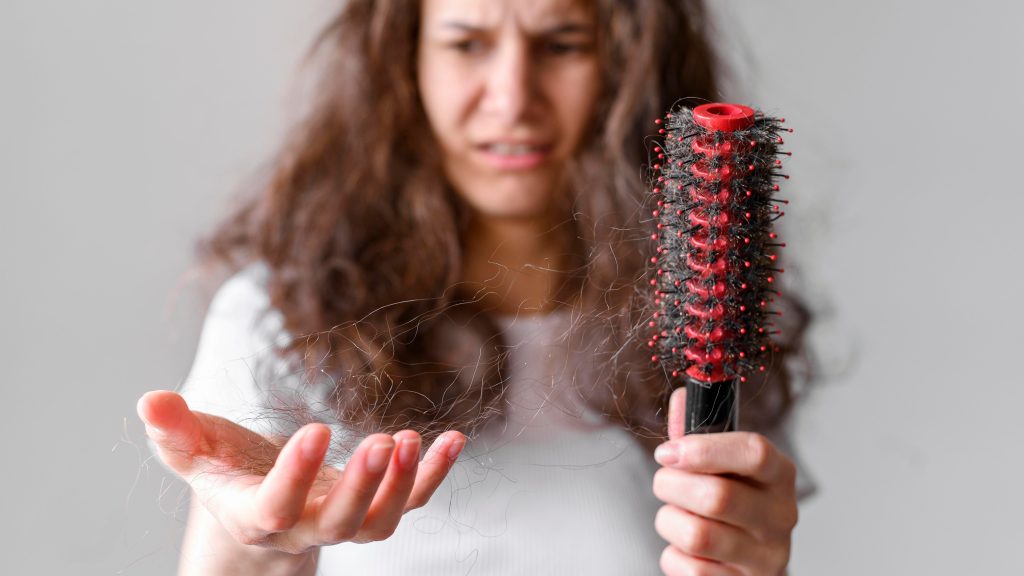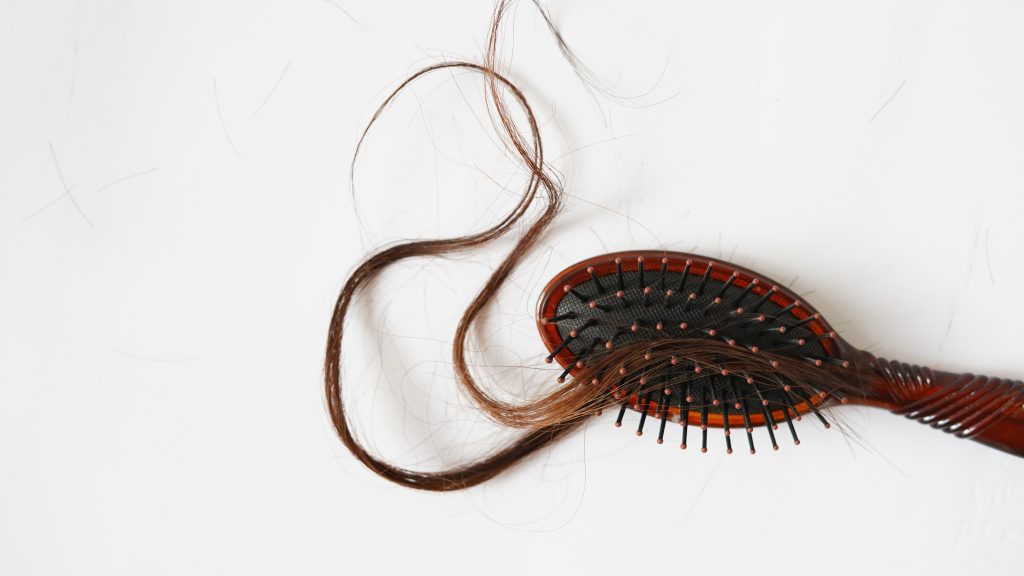Discover the top sulfate-free shampoos that effectively combat hair loss. Find out which products are gentle on your scalp and promote healthy hair growth.
The Best Sulfate-Free Shampoos for Hair Loss
Hair loss is a common concern for many individuals, both men and women. Understanding the causes and effects of hair loss is crucial in finding effective solutions. One factor that has gained significant attention in recent years is the presence of sulfates in shampoos. Sulfates are chemicals that create the foaming lather in many hair care products but can potentially contribute to hair loss. In this article, we will explore the role of sulfates and why sulfate-free shampoos are recommended for hair loss. We will also highlight the benefits of using sulfate-free shampoos and provide a list of the top sulfate-free shampoos available in the market today.
Understanding Hair Loss

Hair loss, medically known as alopecia, can be caused by a variety of factors. These factors can include hormonal imbalances, genetics, certain medications, stress, and medical conditions such as alopecia areata. It is important to note that a certain amount of hair loss is normal, as individuals typically shed up to 100 hairs per day. However, excessive hair loss can be a cause for concern and may indicate an underlying issue.
When it comes to understanding hair loss, it is crucial to delve deeper into the different types and causes. By doing so, individuals can gain a better understanding of their own unique situation and explore appropriate treatment options.
There are several different types of hair loss, including androgenetic alopecia (pattern baldness), telogen effluvium (temporary hair shedding), and alopecia areata (autoimmune disorder). Androgenetic alopecia is the most common type of hair loss and is often hereditary. Telogen effluvium, on the other hand, can be triggered by factors such as physical or emotional stress, hormonal changes, or certain medications. Alopecia areata is an autoimmune disorder in which the immune system mistakenly attacks the hair follicles, causing hair loss in patches.
Causes of Hair Loss
Understanding the causes of hair loss is crucial in finding the right solutions. Hormonal imbalances, such as an overproduction of dihydrotestosterone (DHT) in both men and women, can lead to hair follicle shrinkage and eventual hair loss. This hormone is derived from testosterone and can cause the hair follicles to become smaller, resulting in thinner hair strands.
In addition to hormonal imbalances, genetic predisposition can play a significant role in hair loss. If your parents or close family members have experienced hair loss, you are more likely to experience it as well. Genetic factors can influence the sensitivity of hair follicles to hormones, making some individuals more prone to hair loss than others.
Other potential causes of hair loss include certain medications. Chemotherapy drugs, for example, are known to cause hair loss as a side effect. Similarly, certain antidepressants and blood thinners can also contribute to hair loss. It is important to consult with a healthcare professional if you suspect that a medication you are taking may be causing your hair loss.
Stress can also contribute to hair loss, as it can disrupt the natural hair growth cycle. When the body is under stress, it can push hair follicles into the resting phase prematurely, leading to increased hair shedding. Additionally, chronic stress can lead to hormonal imbalances, further exacerbating hair loss.
Furthermore, certain medical conditions can lead to hair loss. Thyroid disorders, such as hypothyroidism or hyperthyroidism, can disrupt the normal functioning of the thyroid gland, which plays a crucial role in hair growth. Autoimmune diseases, such as lupus or Hashimoto’s disease, can also cause hair loss as the immune system mistakenly attacks the hair follicles.
How Hair Loss Affects Individuals

Hair loss can have a significant impact on an individual’s self-esteem and overall well-being. It can lead to feelings of self-consciousness, decreased confidence, and even social withdrawal. Since hair is often viewed as a symbol of youth and vitality, experiencing hair loss can be emotionally challenging for many individuals.
In addition to the emotional impact, hair loss may affect how individuals perceive themselves and how others perceive them. Hair loss can alter one’s physical appearance, which can, in turn, influence personal relationships and career opportunities. Individuals may find themselves avoiding social situations or feeling less confident in professional settings.
It is important to recognize that the impact of hair loss varies from person to person. While some individuals may be able to embrace their baldness and feel confident regardless, others may struggle with accepting their new appearance. Finding effective solutions to address hair loss is essential in ensuring a positive outlook and maintaining a sense of self-confidence.
Fortunately, there are various treatment options available for individuals experiencing hair loss. These can range from medications and topical treatments to hair transplant surgeries and lifestyle modifications. Consulting with a healthcare professional or a dermatologist specializing in hair loss can help determine the most suitable treatment plan based on the underlying cause and individual needs.
The Role of Sulfates in Shampoos
Sulfates are chemicals commonly found in shampoos and other personal care products. They are responsible for creating the foaming lather that many individuals associate with effective cleansing. Sulfates, such as sodium lauryl sulfate (SLS) and sodium laureth sulfate (SLES), are inexpensive and provide a satisfying, bubbly experience while washing the hair.
However, sulfates can potentially lead to hair damage and hair loss. These chemicals can strip the hair of its natural oils, leading to dryness, brittleness, and breakage. Additionally, sulfates can irritate the scalp, causing inflammation and disrupting the hair growth cycle. For individuals experiencing hair loss, avoiding sulfates in their hair care routine is often recommended.
What are Sulfates?
Sulfates are synthetic surfactants derived from petroleum. They have strong cleaning properties and are commonly used in various personal care products, including shampoos, body washes, and toothpastes. Sulfates work by attracting both water and oil, effectively lifting dirt and oil away from the hair and scalp.
However, sulfates can be harsh on the hair and scalp, especially for those with sensitive skin or existing conditions such as dandruff or psoriasis. The drying and stripping effect of sulfates can disrupt the natural balance of the scalp, leading to irritation and potential hair loss.
Why Sulfates Can Lead to Hair Loss
The continuous use of sulfate-containing shampoos can strip the hair of its natural oils, leading to dryness and weakening of the hair shaft. Dry and brittle hair is more prone to breakage and can contribute to overall hair thinning. Additionally, the scalp can become irritated and inflamed due to the harshness of sulfates, disrupting the hair growth cycle and potentially leading to increased hair shedding.
Individuals with existing hair loss conditions or sensitive scalps are particularly susceptible to the potential negative effects of sulfates. By switching to sulfate-free shampoos, they can minimize the risk of further hair damage and promote a healthier scalp environment.
The Benefits of Sulfate-Free Shampoos
As the negative effects of sulfates have become more widely known, the demand for sulfate-free shampoos has increased significantly. Sulfate-free shampoos are formulated without the use of sulfates, providing a gentler and more beneficial cleansing experience for the hair and scalp.
How Sulfate-Free Shampoos Promote Hair Health
Sulfate-free shampoos are milder and less likely to cause scalp irritation and dryness. They are formulated with alternative surfactants that gently cleanse the hair without stripping away its natural moisture. This helps to keep the hair hydrated, reducing the risk of breakage and promoting overall hair health.
By using sulfate-free shampoos, individuals with hair loss concerns can create a more favorable environment for hair growth. The absence of sulfates allows the hair follicles to retain their natural oils, providing nourishment and hydration to support healthy hair growth.
The Impact of Sulfate-Free Shampoos on Scalp Health
Sulfate-free shampoos can have a positive impact on scalp health as well. Without the harshness of sulfates, the scalp is less likely to become irritated and inflamed. This can help to alleviate symptoms of scalp conditions such as dandruff and psoriasis, which can contribute to hair loss.
In addition, sulfate-free shampoos often contain beneficial ingredients such as natural oils, botanical extracts, and vitamins that can soothe and nourish the scalp. These ingredients can help maintain a balanced scalp environment and support healthy hair follicles.
Top Sulfate-Free Shampoos for Hair Loss
When it comes to choosing a sulfate-free shampoo for hair loss, there are several excellent options available. These shampoos are specifically formulated to cleanse the hair without the use of sulfates, while also providing additional benefits for hair health and growth. Let’s take a closer look at some of the top sulfate-free shampoos:
Detailed Reviews of Each Shampoo
- Shampoo A: This sulfate-free shampoo is enriched with natural ingredients such as biotin and argan oil. It is designed to strengthen the hair follicles and promote healthy hair growth. Users have reported increased thickness and reduced hair shedding after regular use. Additionally, the shampoo has a pleasant scent and leaves the hair feeling soft and manageable.
- Shampoo B: Formulated with a blend of plant extracts and vitamins, this sulfate-free shampoo rejuvenates the scalp and promotes stronger, fuller hair. It has been praised for its ability to reduce hair thinning and improve overall hair texture. Users have noticed a decrease in hair breakage and increased volume after incorporating this shampoo into their hair care routine.
- Shampoo C: This sulfate-free shampoo contains nourishing ingredients such as aloe vera and keratin. It effectively cleanses the hair while providing essential nutrients for optimal hair health. Users have experienced improved hydration, reduced scalp irritation, and increased hair strength after using this shampoo. It is also suitable for color-treated hair.
Price Comparison of Sulfate-Free Shampoos
While the price of sulfate-free shampoos may vary, it is important to consider the value they provide. Investing in a high-quality shampoo can be beneficial in the long run, as it can help improve hair health and reduce hair loss. Conducting a price comparison and considering the specific needs of your hair and scalp can help you make an informed decision.
How to Effectively Use Sulfate-Free Shampoos
Using sulfate-free shampoos effectively is key to maximizing their benefits. Here are some best practices to consider when incorporating sulfate-free shampoos into your hair care routine:
Best Practices for Washing Hair with Sulfate-Free Shampoos
- Wet your hair thoroughly before applying the shampoo.
- Use a small amount of shampoo, as sulfate-free formulas are typically concentrated.
- Gently massage the shampoo into your scalp and hair, focusing on the roots.
- Rinse thoroughly to remove all residue.
- Follow with a sulfate-free conditioner to maintain moisture balance.
Common Mistakes to Avoid
- Avoid using excessive heat when blow-drying or styling your hair, as this can further contribute to hair damage.
- Do not over-wash your hair, as this can strip away its natural oils and lead to dryness.
- Avoid using styling products that contain sulfates, as they can counteract the benefits of sulfate-free shampoos.
- Remember to choose a sulfate-free shampoo that suits your specific hair and scalp needs.
In conclusion, sulfate-free shampoos offer a gentler and more beneficial cleansing experience for individuals experiencing hair loss. By avoiding sulfates, individuals can minimize the risk of hair damage and create a more favorable environment for hair growth. With a wide range of sulfate-free shampoos available in the market, finding the right one for your specific needs becomes easier. By following best practices and avoiding common mistakes, individuals can effectively incorporate sulfate-free shampoos into their hair care routine and promote healthier, stronger hair.






[…] Before we delve into the world of hair restoration, it’s essential to understand the havoc chemical treatments can wreak on your precious tresses. One of the most common culprits is hair thinning due to chemical damage. As the chemicals penetrate deep into the hair shaft, they can weaken the hair follicles, leading to increased hair loss. […]